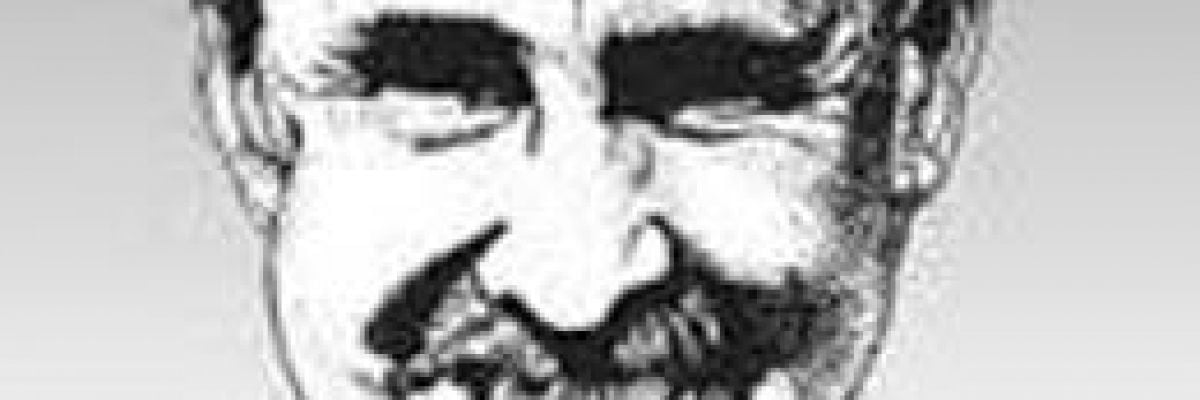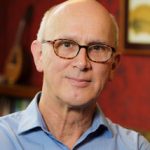
“I speak—more or less fluently—eight languages and have a reading knowledge of eleven others, necessary for my research.” He could have spoken to almost anyone in the world in that person’s native tongue. He was very much a catholic Catholic.
Born in 1909 under the Austro-Hungarian Empire, Erik von Kuehnelt-Leddihn’s childhood languages, as I recall him explaining, were German, Hungarian, and Latin. Maybe there were one or two others languages too. I forget, but he seemed never to have forgotten anything. I never met anyone with a mind so capacious and so filled, not just with facts but with connections among those facts.
Despite our age difference—he had more than forty years on me—he insisted that I call him by his given name, so that is what I will do here.
Erik began his journalistic career at age sixteen, writing for London’s Spectator, and he ended up visiting most of the world’s countries, often several times. Beginning in 1955 he alternated periods of study with annual trips around the world, “in order to gain firsthand information and impressions,” as he put it in an autobiographical squib.
In the opening pages of his second most important book, Leftism, he described himself this way: “One of my ambitions is to know the world; another one is to do research in arbitrarily chosen domains serving the coordination of the various branches of the humanities: theology, political science, psychology, sociology, human geography, history, ethnology, philosophy, art. I have a real horror of one-sided, permanent specialization. I am also active as a novelist and painter. My books, essays, and articles have been published on five continents and in twenty-one countries.”
Again, from the autobiographical squib: “I have repeatedly altered the line of my activities in order to attain and retain a comprehensive view of the humanities. My skeptical views in regard to democracy resemble those of the Founding Fathers, of Alexis de Tocqueville, Jacob Burckhardt and, especially, Montalembert whom I admire greatly.” Erik’s preference was for monarchy, but he admired the original republican establishment of the United States.
He married the Countess Christiane Goess. You might suspect that implies he was a man of means. Not at all. He toured the U.S. yearly in order to earn a living, since his lectures were more popular in this country than in Europe, where his political convictions made him odd man out. In the U.S. they made him an eccentric, which meant he could draw an audience. His long-time friend William F. Buckley, Jr., once described Erik, while he was still alive, as being “very poor.” He may have been so financially, but he certainly wasn’t so intellectually or affectively.
Erik’s masterwork was Liberty or Equality, first published in 1952 and available as a free download, in PDF and ePub formats, here and also as a Kindle book or paperback at Amazon. I urge you to get a copy and luxuriate in it.
His non-fiction books are heavy with footnotes or endnotes, some of which are hundreds of words long. In Liberty or Equality there are 990 notes. They make for fine reading on their own. I recall spending hours just reading Erik’s notes. He seemed to know or have known just about anyone of consequence in mid-twentieth-century Europe, including popes and lesser Churchmen, and he knew fine points of earlier European (and American) history.
(When Paul Johnson’s acclaimed Modern Times was published in 1985, Erik, seeking to make a good book better, sent Johnson—who had a reputation for knowing everything about everything—a long list of minor errors in his book. Johnson never replied.)
My wife and I once had Erik to our home for dinner. He was a delightful companion at the table. At some point I took off the shelves five of his books and asked for his autograph in each. He smilingly obliged. When I looked at the five signatures, they differed from one another vastly. A forensic document examiner would have claimed in court that they were written by five different men.
After he left the house, my wife, who is a native of Japan, told me that Erik’s Japanese was quite good. Not that I was surprised. In the middle of World War II, he taught a course in Japanese at Fordham University. That was at the midpoint of a ten-year sojourn in America. He came to teach at Georgetown University in 1937. After a visit to Spain during its civil war, he returned to the U.S. and taught history and sociology at St. Peter’s College in Jersey City. (Minor note: Jersey City is where Catholic apologists Frank Sheed and his wife, Maisie Ward, are buried.)
At the end of 1943, after his stint at Fordham, Erik joined the faculty of Chestnut Hill College. He was succeeded there by one of the finest Catholic historians of our times, John Lukacs. In 1947 Erik “resettled in Austria to devote myself to reading, writing, and further studies, visiting America every year.”
It was while he was on one of his cross-country speaking tours that I arranged for him to speak on behalf of Catholic Answers. In addition to that, at our offices we recorded several talks by him. To my regret, we never got around to offering the talks to the public. The original cassette tapes languish somewhere in storage. I should hunt around for them, to see how Erik’s observations of a quarter of a century ago have held up.
I remember fetching him one time from the airport. He carried a large suitcase that may have been of pre-war vintage. Certainly it must have stood out from among the other luggage on the baggage claim carousel. I offered to carry the suitcase for him, but he waved me off. He managed fine on his own. Not many octogenarians could have.
A couple of years after he first visited our offices, Catholic Answers received a note from him. I no longer have it, but it read something like this: “I extend to your staff my condolences on the unexpected death of my friend Karl Keating.” This news came as a surprise to me (I always seem to be the last to be told unhappy news). I quickly replied to him in words echoing Mark Twain. On Erik’s next visit we had a good laugh about it.
A decade ago my wife and I were touring Austria, and I suggested we make a pilgrimage to Lans, the small town in the Tyrol where Erik had lived. (He had died in 1999.) Lans, with barely nine hundred inhabitants, is located five miles south of Innsbruck. We were unable to pin down which house had been his. We asked a couple of townsfolk, but they didn’t seem to have known him. We found the village church, went around the side, and located his and his wife’s graves. I prayed for their repose and in thanks for having known him, however briefly.



